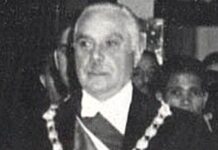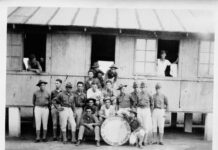The brief period of French occupation.
Despite its brevity, the brief epoch of French occupation in the Dominican Republic bore significant consequences and left indelible imprints on the country’s history. The year was 1795 when the Treaty of Basel, a peace pact between Spain and France during the War of the Pyrenees, stipulated that all Hispaniola would be ceded to France. This marked the genesis of French dominion over Santo Domingo, initiating a critical transition phase fraught with political unrest and social upheaval.
Spain’s capitulation led to an epoch marked by a profound cultural transformation as it subsumed under Gallic sovereignty. The Spanish colonial aristocracy was supplanted by a new Francophone elite who sought to imprint their culture upon Santo Domingo.
However, this power transfer engendered widespread discontent among society’s upper echelon and catalyzed resistance movements against French rule. The French regime introduced pivotal reforms that reshaped Santo Domingo’s societal fabric.
They championed an egalitarian ethos that directly conflicted with traditional Spanish societal structures that upheld aristocratic privilege. These radical changes spurred discord among the local populace, who resented their new rulers’ attempt at forcibly restructuring their society.
Despite these tensions, French dominion did contribute constructively towards Santo Domingo’s development, mainly via agrarian reforms aimed at modernizing plantations with advanced European techniques. This enhanced productivity and efficiency for sugar cultivation – which was crucial for sustaining the Dominican economy during this period.
However, as fate would have it, this transitory period of French rule would not last long; merely ten years post-Basel Treaty enactment marked the advent of Haitian control over Santo Domingo in 1805 following Jacques Dessalines’ invasion. Though brief, the French occupation brought upon consequential transformations that reverberate through Dominican society even today, serving as a testament to how periods (even short-lived) can sculpt nations and dictate their future trajectories.
Haitian occupation and its influence on the Dominican society.
Amid the chaos and instability that plagued the Dominican Republic during the early 18th century, a new external force significantly influenced the nation. The Haitian occupation, which lasted from 1822 to 1844, represented a period of considerable transformation for the Dominican society. The Haitian ruler at that time, Jean-Pierre Boyer, imposed rigorous military rule over the Dominican Republic.
This era was marked by strict disciplinary measures and an enforced labor system modeled after France’s Code Noir. Moreover, many Dominicans were forced to abandon their religion as Catholic churches were closed down by Boyer’s decree to establish Haiti’s Vodou religion in his quest for cultural assimilation.
Additionally, the Haitian occupation introduced new economic policies that further fanned discord among Dominicans. Although slavery was abolished under Haitian rule—an act largely viewed favorably—Boyer also implemented heavy taxation to repay France for Haiti’s independence.
These colossal impositions burdened many Dominicans who were primarily farmers and had little monetary income. The linguistic impact of this period cannot be understated either.
The dominance of Creole French during this time led to its usurpation of the Spanish language in several public domains, such as courts and formal institutions across the landlocked nation. However, Spanish continued to linger in household settings and among comrades developing a sense of national identity based on language.
Socially speaking, one interesting facet of this problem-fraught era remains the mingling between Dominicans and Haitians despite mounting political tensions. Interactions amid work settings or marriages between both communities were fairly common, leading to cultural exchanges between these two distinct societies.
Like this encapsulated by a foreign power for an extended period, enduring forced cultural shifts and economic hardships, it was understandable that a genuine desire took root within Dominicans—a thirst for self-determination that became instrumental in shaping their future struggle towards independence. The indomitable spirit encouraged by these experiences would become evident within Juan Pablo Duarte’s audacious leadership years later—effectively making him one of history’s greatest torchbearers in Latin America’s fight against colonialism.
Juan Pablo Duarte and the founding of the Dominican Republic in 1844 led the quest for independence.
In the labyrinth of Latin American history, the chapter on Dominican Republic’s independence is a story of relentless determination and bold idealism. This period was significantly marked by the lionhearted efforts of Juan Pablo Duarte, who harnessed a vision of an autonomous Dominican nation.
Juan Pablo Duarte, born in 1813 to Spanish parents, emerged as one of the prominent torchbearers in this quest for freedom. Cognizant of his country’s dire need for sovereignty, he dedicated his life to drifting the Dominican Republic away from Haitian control and toward self-governance.
A strong proponent of education and knowledge as catalysts for change, he sought quality learning experiences abroad. The seeds sown during his formative years bloomed into an unceasing desire for independence.
Inspired by Enlightenment ideas and ideologies about autonomy, Duarte founded a secret society known as La Trinitaria in 1838. Along with passionate patriots like Francisco del Rosario Sánchez and Ramón Matías Mella, they conspired against Haitian rule amidst immense danger and volatility.
Their clandestine meetings were held under different guises, like drama societies or cultural clubs, to evade suspicion from Haitian authorities while they plotted their revolutionary blueprint. Their efforts culminated on February 27th, 1844, when after numerous failed attempts and immense struggles, they finally proclaimed independence before dawn at Puerta del Conde in Santo Domingo.
While Duarte himself was in exile during this defining moment due to a political fallout with conservative factions within La Trinitaria, his spirit infused courage among those present, who echoed their declaration with shouts of “Long live the Dominican Republic!”. The founding of the Dominican Republic did not signify an end to struggles or challenges; it marked merely another chapter where Dominicans now had to self-navigate these tumultuous waters.
There were continued internal fractions among various factions within the new republic; nevertheless, this did not dilute their shared triumph over breaking away from foreign authority. The legacy left by Juan Pablo Duarte remains imprinted on every facet of Dominican society even today — signifying valorous patriotism combined with tenacious resilience against adversity.
His remarkable journey is emblematic that liberty does not come as a gratuitous gift but must be fervently fought for —a testament that continues to inspire countless generations that followed him. In retrospection, disentangling from Spanish rule was indeed an essential milestone but it was far from being an endgame — it merely signaled the beginning of another struggle; now against Haitian domination which spanned two decades before culminating into full-fledged independence led by Juan Pablo Duarte.
The establishment of an independent state in 1844 served as both closure and commencement—closing an era characterized by repression under foreign control while commencing one where Dominicans took destiny into their own hands—shaping it according to their unique identity. Thus concludes our exploration into this key period in history which bore testament to human resolve against subjugation—the saga that propelled the Dominican Republic towards its rightful place among sovereign nations carving its own path free from external influence or control.
Briefly
The journey through the 18th and 19th century, seeing the transition of power from Spanish to Haitian before finally culminating in the independence of the Dominican Republic, is both fascinating and enlightening. It’s a period marked by changing fortunes, shifting paradigms, and indomitable courage.
This historical saga is replete with heroes who dared to dream and had the mettle to make those dreams manifest. Juan Pablo Duarte stands as a beacon among these heroic figures—his pursuit for an independent Dominican Republic became a rallying cry that inspired his compatriots.
His leadership was instrumental in freeing his people from Haitian occupation, leading to the establishment of a free and sovereign nation on February 27, 1844. This day continues to be celebrated with much fervor as Dominican Independence Day.
The Haitian period left enduring imprints on the socio-cultural fabric of this Caribbean nation-state. The Dominicans inherited their legal system from Haiti along with nuances of language, musical traditions merged beautifully creating unique sounds resonant till today, and religious practices blended into new forms of spiritual expressions.
Despite these influences that shaped their identity post-independence, Dominicans developed their unique nationalistic sentiment devoid of any external control. The struggle for freedom fostered a sense of unity among them which further strengthened after gaining independence.
This epoch in Dominican history is not just about changes in colonial powers or gaining political independence; it is about resilience and tenacity shown by ordinary men who rose gallantly against oppressors for their right to self-governance-a testament to human spirit undefeated despite immense adversities. These chapters of history serve as an illuminating guide for future generations; reminding them at every step that freedom once gained should never be taken for granted.
Through tribulations came triumphs – such is life’s grand design – yet few societies have borne witness to such transformative power changes as seen in this historical timeline between the 18th-19th centuries within Dominican Republic’s borders. As we look back on those tumultuous times now long past, optimism blossoms forth knowing how far this island country has come since its days under foreign dominion—an inspirational testament indeed!


